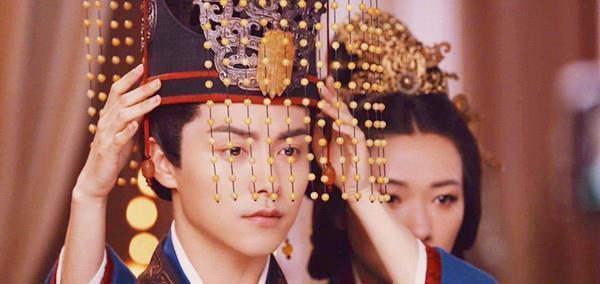In the Romance of the Three Kingdoms, there is a description of Cao Cao voluntarily assassinating Dong Zhuo for the sake of national righteousness. At that time, after Dong Zhuo entered the capital, he relied on a large army to begin to monopolize the imperial program, he killed the Young Emperor, and established Liu Xie as the Emperor of Han, so the power was in his hands, and he did wrong, and for a time the ministers were angry, but because the ministers did not have military power in their hands, they could not fight against Dong Zhuo. At this time, Cao Cao stepped forward, and he deliberately borrowed a seven-star sword from Wang Yun's house, planning to take advantage of the opportunity to assassinate Dong Zhuo on the pretext of offering the sword. It was just that Cao Cao was a little nervous when he assassinated Dong Zhuo, so that in order to succeed, Dong Zhuo was aware of it, and Cao Cao, in desperation, could only say that he offered the sword to Dong Zhuo and took the opportunity to escape from Luoyang.

It seems that Cao Cao disregarded his own life and also wanted to hand blade Dong Zhuo, which shows that Cao Cao was loyal to the Han Room. What's more, when the Kwantung Coalition army joined forces to fight Dong Zhuo later, even if many princes stagnated in order to avoid the loss of their own troops, Cao Cao was willing to fight alone and almost died. And even if he later welcomed Emperor Xian of Han to XuDu, he did not take this opportunity to become an emperor, but became a lifelong Han Chancellor. If this is the case, is Cao Cao really a person who has always been loyal to the Han Dynasty?
In fact, Cao Cao's assassination of Dong Zhuo is just a fabricated story in the book, but in history, especially when he was young, Cao Cao was not afraid of the magnates, bent on supporting the Han Dynasty, saying that it was okay for Cao Cao to be loyal to the Han Dynasty when he was young, but people would always become, in 189 AD, Cao Cao ran away from Luoyang, returned to his hometown despite his father's opposition, and contacted his family brothers to fight against Dong, at this time, Cao Cao was definitely a loyal subject. Later, he was defeated by Xu Rong and could only temporarily attach himself to Yuan Shao. At this time, Cao Cao was still very confused, but fortunately, he had Xun Yu, Chen Gong and other people around him, who pointed out the direction for Cao Cao when he wandered again and again, that is, if he wanted to achieve hegemony, he must first occupy the territory, only in this way, he had the opportunity to enter the imperial court.
It was in this direction that Cao Cao occupied Yanzhou, fought for Xuzhou, and fought a decisive battle with Yuan Shao in the Guandu area, and after defeating Yuan Shao, Cao Cao spent several years to suppress the remnants of Yuan Shao and successfully unify the north. However, before the Battle of Chibi, Cao Cao abolished the Three Dukes, took charge of himself, and killed the famous warrior Kong Rong, thus embarking on the road of becoming emperor. If Cao Cao was no longer a loyal subject of the Han Dynasty from when he began, then what changed Cao Cao's mentality was the incident of the Yidai Edict in the fifth year of Jian'an, and there was an idea that when he took Yecheng, some actions were when he took the position of chancellor before the Battle of Chibi.
The author believes that perhaps as early as the Yidaizhao incident, Cao Cao, who had changed his thinking, was no longer a loyal vassal of the Han Dynasty.